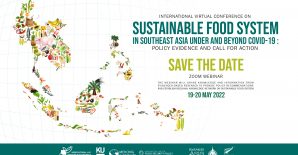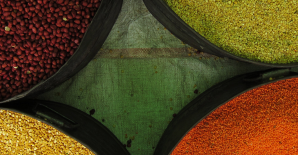Papua New Guinea’s growing international trade in food and other agricultural products will continue to be important to overall food security outcomes among rural and urban households in the country. Rural households that produce key export cash-crops, such as coffee, cocoa, or palm oil, depend on the cash
economy to supplement their food consumption, while urban households depend on rice and other agri-food imports, as well as domestic goods, for consumption. However, agri-food imports in PNG have expanded both healthy and unhealthy food consumption patterns. For example, agri-food imports of protein-rich, animal-source foods have grown by 8 percent per capita per year since 2001. This is a positive transition given that PNG has a limited livestock sector and low levels of protein consumption across both poor and non-poor households (Schmidt et al. 2019). However, agri-food imports of sugary soft drinks have increased by almost 12 percent per capita per year since 2001, representing the largest growth in processed agri-food imports over the analysis period.
This project note focuses on trends in agrifood imports and exports during the last two decades to better evaluate potential changes in import demand and export potential for PNG. The COVID-19 pandemic and associated domestic and international policies are disrupting trade flows both within PNG and between PNG and other countries. To maintain agricultural output among farmers export crops and to ensure food security among rural and urban populations within PNG, it is important that domestic trade, marketing, and the mobility of both foodstuffs and traders is secure, facilitated, and safe with appropriate social distancing measures to reduce virus spread. Outside of the COVID-19 pandemic, macro-economic policies, e.g., exchange rate policies, should be reviewed to ensure that the export-oriented agricultural production of smallholder farmers remains economically vibrant and sufficiently attractive financially to incentivize farmer to invest in yield-enhancing technologies



